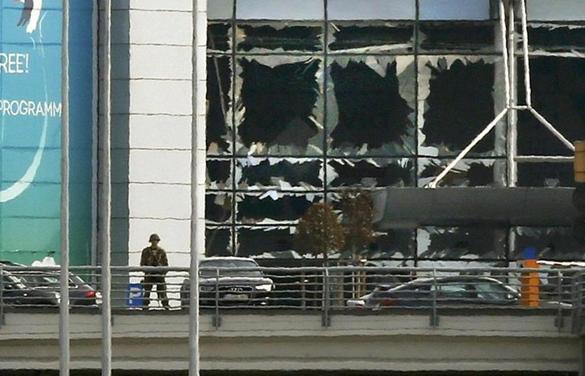Islamic State Could Succeed in Tearing a Divided Europe Apart
 |
| Brussels Airport after today's blast. Credit: The Boston Globe |
Europe represents a "softer" target than the United States. Attacks there have the potential to threaten Europe's way of life and economy in a big and lasting way. Europe has two choices: Pull together or pull apart.
Shortly after the Madrid commuter train bombings in 2004, the newly elected Spanish government ended Spain's involvement in operations in Iraq. Many at the time saw this as precisely the point of the attacks: The US would not pull its troops out of the Middle East in response to terror, but its European allies were much less committed to the wars in Iraq and Afghanistan. Hitting them might be enough to encourage them to pull out (London was struck a little more than a year later—to no avail). Belgium is not involved in the Syrian civil war, but attacking it may achieve another goal: the disintegration of the European project.
The Paris bombings and the stream of refugees arriving on Europe's shores from Syria and other war-torn places has already led to a partial reinstatement of border controls between countries in the European Union's previously border-free "Schengen Area." In response to this morning's attacks in Brussels, high-speed train travel to the Belgian capital from other parts of Europe has been halted. The Paris attacks had also revealed how poor cooperation between the intelligence and police agencies of the various EU countries is. Cooperation is not easy: Intelligence agencies often fear the information they share might be leaked or otherwise misused. In many cases, there may also be legal barriers to cross-border information sharing. Today, at the latest, it is clear that it is no longer viable to allow people and goods to cross freely between 26 countries while intelligence gathering and police work remain confined within national borders.
The solution would seem to be "more Europe," i.e. greater European integration and cooperation. The problem is that the attacks come at a time when enthusiasm for "more Europe" among Europeans is low (voters in elections to the European Parliament from Greece, Hungary, and the United Kingdom all gave majorities to parties skeptical of the EU and opposed to greater integration). Many will conclude that the answer to the conundrum of trans-national movement coupled with national security services is to dismantle that free movement and reinstate border controls. This would end one of the biggest benefits the EU has brought—freedom of movement—damage Europe's economy by raising the cost of conducting cross-border business, and call the entire European project into question. Europeans have a stark choice between the "ever closer union" that was the original plan for Europe and a disintegration into independent, but Lilliputian, states fending for themselves. Choosing the latter really would be a victory for terrorism over freedom.


Comments
Post a Comment